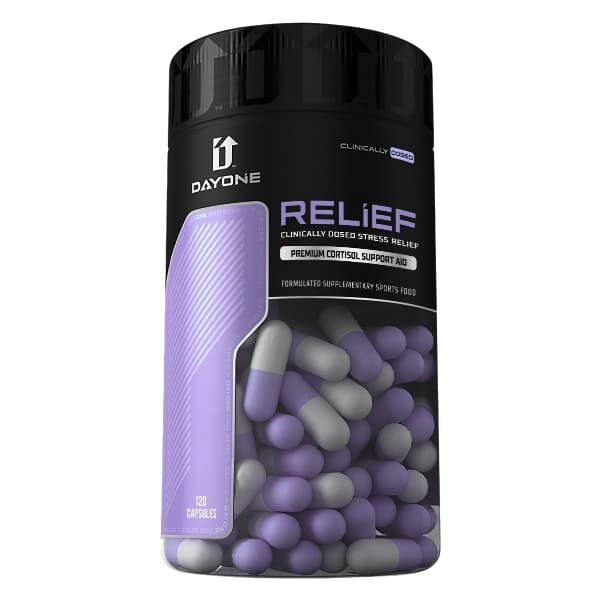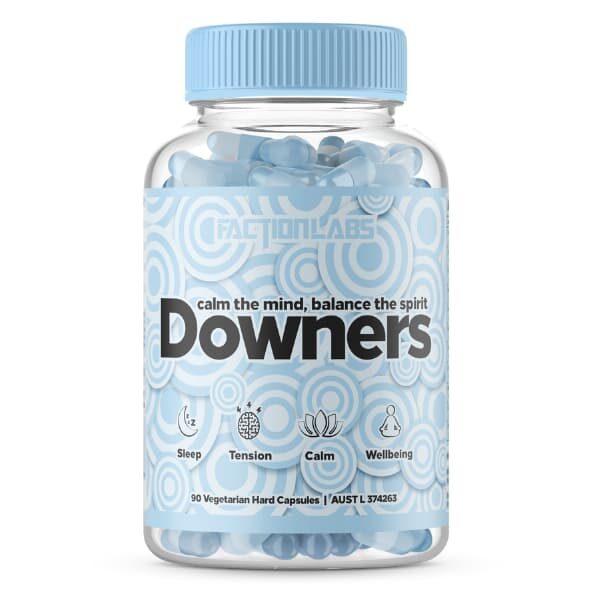Read: How Does Cortisol Effect Your Training Result?
Cortisol is commonly known as the “stress hormone” — and that might make you think that it only has a negative effect on the body. However, like all the different hormones that help to regulate our bodily functions, cortisol has important and essential roles to play in your overall health.
Understanding the function of cortisol can help you recognise the positive and negative effects the hormone can have on your health and wellbeing, and help you to make lifestyle choices that may assist with keeping your cortisol levels in check.
WHAT IS CORTISOL?
Cortisol is a hormone released by your adrenal glands in response to stress. It’s released in response to many different types of stress — including lifestyle stressors or the bodily stress you experience during a high-intensity workout.
This hormone plays an important role in enabling your body to respond to stress, but when cortisol levels remain high for a prolonged period of time, this can impact your health in a negative way.
How does cortisol function in the body?
Cortisol triggers what’s known as the “fight-or-flight” response, which happens when a stressful event occurs and your body reacts by raising your heartbeat, blood pressure and tensing muscles.
Cortisol plays an important role in increasing sugar in the blood, promoting tissue repair and reducing inflammation. It also helps to regulate your blood pressure, energy levels, and your body’s circadian rhythm or sleep-wake cycle.
During the course of an average day, cortisol levels will fluctuate naturally. Cortisol is usually higher in the morning, lower in the afternoon, and at its lowest point in the evening as you wind down for sleep. It’s essential to have some cortisol in your bloodstream, but when you have too much or too little, this can cause problems that affect your whole body.
Following a healthy routine and taking measures to manage stress through good nutrition, regular exercise and mindfulness can help you to regulate cortisol levels within a healthy range.
If you suspect that your cortisol levels are consistently too high or too low, be sure to see your health professional for further advice.
What happens to cortisol during exercise?
While exercise does cause your blood cortisol levels to rise in the short term, exercising will also help to reduce your cortisol levels at night and help you to sleep better.
Endurance training, where you exercise for multiple hours consecutively, can raise your cortisol levels for several days or longer. If you’re otherwise under a lot of stress, it might help to keep your workouts to under an hour to help to regulate cortisol levels in your body.
Can you have too much cortisol?
While cortisol levels should fluctuate throughout the day, if cortisol stays too high for a prolonged period, it can have an adverse effect on your health.
High cortisol can lead to reduced protein synthesis, which in turn can inhibit muscle repair. It can also suppress the production of growth hormone and other hormones that contribute to muscle development.
When your cortisol levels remain high for a prolonged period of time, it can also slow down your metabolism and hinder your athletic performance. To make the most of your training, it’s important that this stress hormone stays within a healthy range.
7 WAYS to lower your cortisol levels
To help you to get the most out of your fitness journey, here are some of the ways that you can regulate your cortisol levels.
Regular exercise
While more exercise is not always better, exercise has an important role to play in helping to manage stress and maintain healthy cortisol levels. If you have been under stress in other areas of your life, choose a restorative form of exercise such as yoga or Pilates.
Taking a gentle walk in nature can also help you to relax and reduce stress. It doesn’t need to be long — even 10 minutes can change how you feel.
Try to set aside time to exercise several times each week. It doesn’t have to be a huge time commitment — this is time for you, so spend it in a way that you enjoy.
Try doing your workouts in the morning
If you aren’t a morning person, a morning workout might seem difficult — but it could be worth it.
Exercise causes a short-term spike in cortisol, and when you exercise in the morning, this spike will coincide with your body’s natural daily cortisol fluctuation.
Exercising in the evening, on the other hand, may cause your cortisol levels to increase right when it should be decreasing as your body winds down for sleep.
A 2018 study by the Stanford School of Medicine, published in Cell Metabolism, found that the timing of stress hormone release has an impact on metabolism which can lead to weight gain. When levels of stress hormones are boosted during the body’s natural peak of these hormones, there is no adverse effect on overall health or weight gain.
However when stress levels are elevated at times when these hormones should be decreasing, weight gain and adverse impact on overall health was observed. More research is needed to confirm exactly how these mechanisms occur.
Sleep seven to eight hours a night
When your cortisol levels are high, it may be hard to sleep through the night. However, sleep is essential for regulating your natural hormone levels.
You can improve your sleep by taking steps to wind down before bed. Making time to stretch, practicing mindfulness or implementing a gratitude practice can all help to reduce your stress and help you to relax before bed.
Include prebiotics and fibre in your diet
Cortisol is made from cholesterol, the same precursor molecule that is used to make other important hormones in your body. All of your hormones work together to create a healthy balance — there’s no one hormone that acts independently of the others.
One way that you can help to regulate the overall hormone balance in your body is by ensuring that you consume enough dietary fibre in the form of prebiotics. Aim for around 28 grams of fibre every day from foods like artichokes, asparagus, or leeks.
Make time for rest and recovery
Adequate recovery between workouts is essential to ensure that cortisol levels remain within a healthy range over time. When you don’t allow enough time for recovery, you may find that you hit a fitness plateau or experience other symptoms of overtraining.
Meditation and mindfulness
A 2017 meta-analysis and systematic review in the Journal of Psychiatric Research found that meditation leads to reduced cortisol levels in a diverse range of populations.
Another study published by the University of California in 2014 in Psychoneuroendocrinology found that women who practice mindful awareness have reduced cortisol response to negative thoughts. More research is needed to validate this in the wider population.
SUPPLEMENTATION
The supplement industry doesn’t just cater towards bodybuilder’s with supplements such as protein and pre workouts. No. There are a massive range of health supplements that are designed to increase your overall health. One category being sleep aid and cortisol control.
Here are our top 4 picks to help reduce cortisol levels in the body and can also help increase your length and quality of sleep.
top 4 cortisol control
Cortisol (Stress) Relief
Cortisol (Stress) Relief
Cortisol (Stress) Relief
View All Cortisol Control Supplements HERE.
You can start a mindfulness practice by setting aside just a few minutes each day. Keeping a journal can help you to monitor how this simple practice impacts your overall wellbeing over time.
Lower your cortisol naturally to improve your overall wellbeing
Making these healthy choices into habits will set you up for success as you work towards your health and fitness goals.
Always remember that exercise and fitness is just one part of a healthy lifestyle — nutrition, sleep and overall life balance are important for your wellbeing too.
* Disclaimer: This blog post is not intended to replace the advice of a medical professional. The above information should not be used to diagnose, treat, or prevent any disease or medical condition. Please consult your doctor before making any changes to your diet, sleep methods, daily activity, or fitness routine. Sweat assumes no responsibility for any personal injury or damage sustained by any recommendations, opinions, or advice given in this article.





